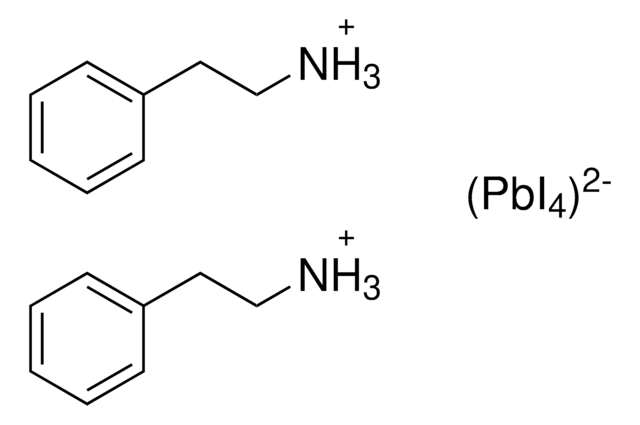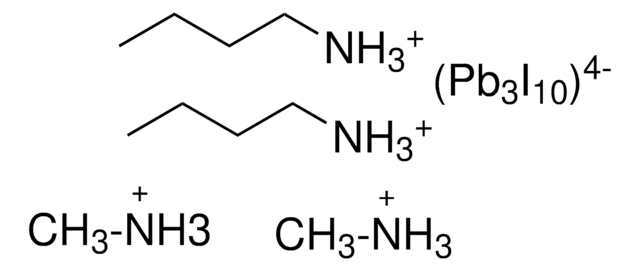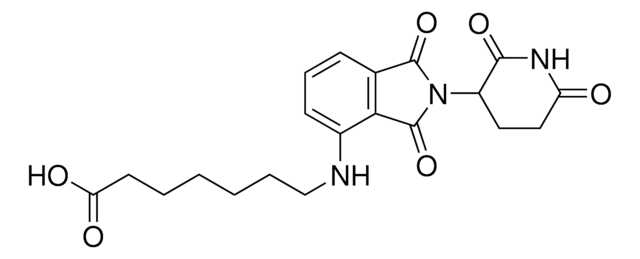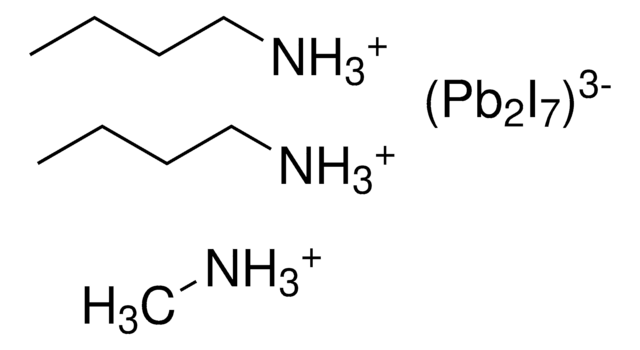910945
di-phenylethylammonium lead(II) tetrabromide
n = 1
Synonym(s):
(PEA)2PbBr4, 2D perovskite, Bis[(2-phenylethyl)ammonium] tetrabromoplumbate
About This Item
Recommended Products
form
powder
greener alternative product characteristics
Design for Energy Efficiency
Learn more about the Principles of Green Chemistry.
sustainability
Greener Alternative Product
greener alternative category
, Enabling
General description
Application
Signal Word
Danger
Hazard Statements
Precautionary Statements
Hazard Classifications
Acute Tox. 4 Inhalation - Acute Tox. 4 Oral - Aquatic Acute 1 - Aquatic Chronic 1 - Repr. 1A - STOT RE 2
Storage Class Code
6.1C - Combustible acute toxic Cat.3 / toxic compounds or compounds which causing chronic effects
WGK
WGK 3
Flash Point(F)
Not applicable
Flash Point(C)
Not applicable
Choose from one of the most recent versions:
Certificates of Analysis (COA)
Sorry, we don't have COAs for this product available online at this time.
If you need assistance, please contact Customer Support.
Already Own This Product?
Find documentation for the products that you have recently purchased in the Document Library.
Our team of scientists has experience in all areas of research including Life Science, Material Science, Chemical Synthesis, Chromatography, Analytical and many others.
Contact Technical Service





![tert-Butyl (R)-3-(2-acetamidopropan-2-yl)-6-chloro-5-methyl-2,3-dihydrospiro[indene-1,4′-piperidine]-1′-carboxylate](/deepweb/assets/sigmaaldrich/product/structures/719/283/e2c466e0-b4df-4961-9844-bfffbe187f3e/640/e2c466e0-b4df-4961-9844-bfffbe187f3e.png)




